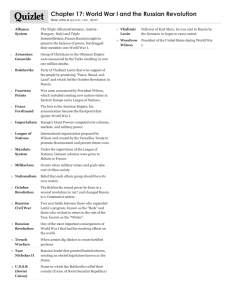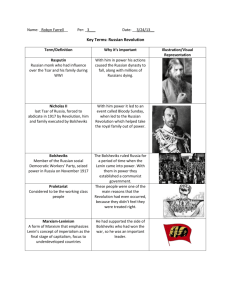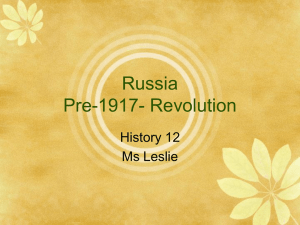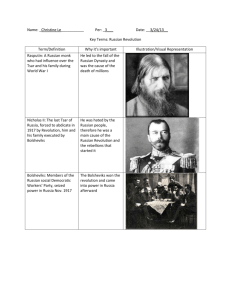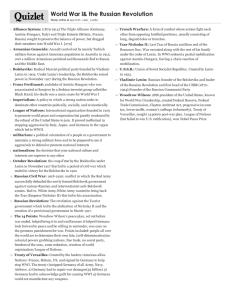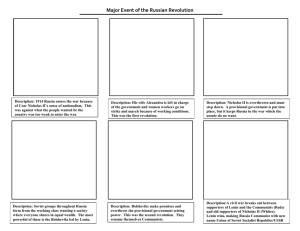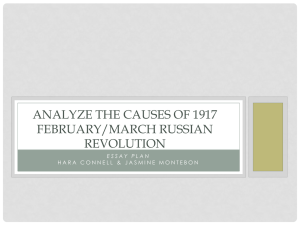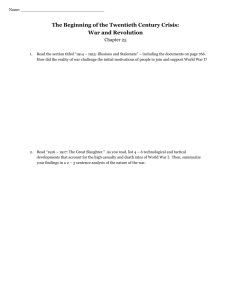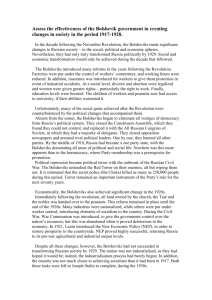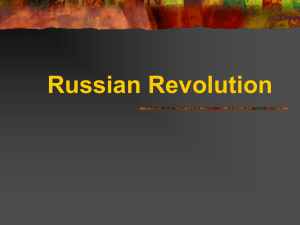Russian History Scavenger Hunt
advertisement
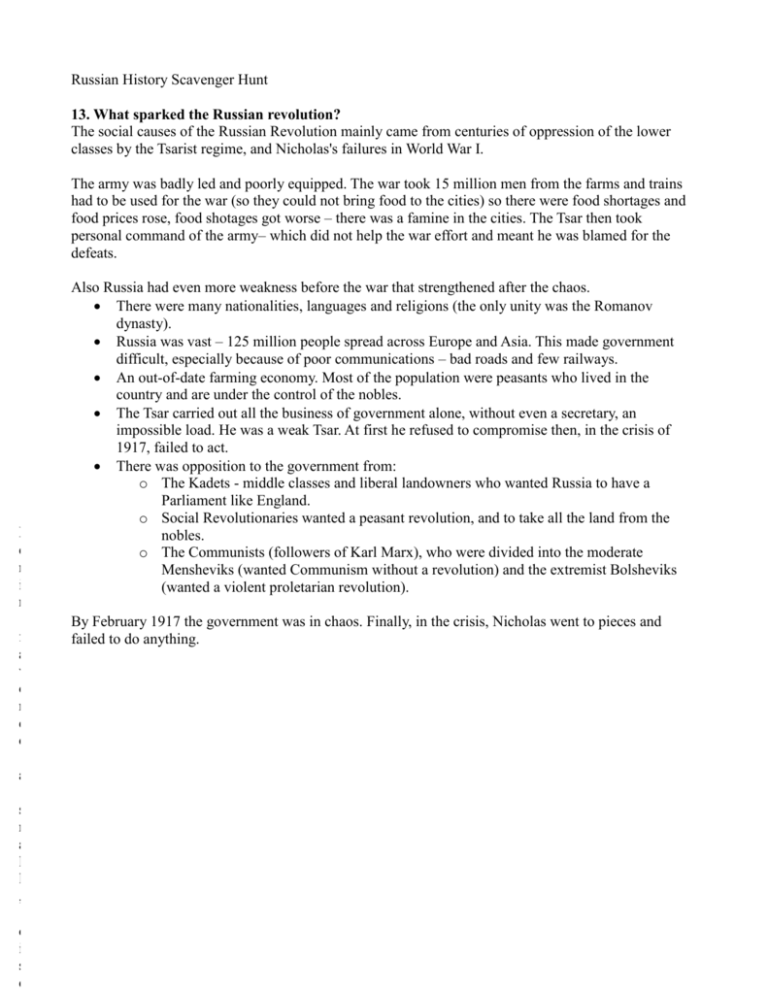
Russian History Scavenger Hunt 13. What sparked the Russian revolution? The social causes of the Russian Revolution mainly came from centuries of oppression of the lower classes by the Tsarist regime, and Nicholas's failures in World War I. The army was badly led and poorly equipped. The war took 15 million men from the farms and trains had to be used for the war (so they could not bring food to the cities) so there were food shortages and food prices rose, food shotages got worse – there was a famine in the cities. The Tsar then took personal command of the army– which did not help the war effort and meant he was blamed for the defeats. L e n i n f a v o r e d a s m a l l , d i s c Also Russia had even more weakness before the war that strengthened after the chaos. There were many nationalities, languages and religions (the only unity was the Romanov dynasty). Russia was vast – 125 million people spread across Europe and Asia. This made government difficult, especially because of poor communications – bad roads and few railways. An out-of-date farming economy. Most of the population were peasants who lived in the country and are under the control of the nobles. The Tsar carried out all the business of government alone, without even a secretary, an impossible load. He was a weak Tsar. At first he refused to compromise then, in the crisis of 1917, failed to act. There was opposition to the government from: o The Kadets - middle classes and liberal landowners who wanted Russia to have a Parliament like England. o Social Revolutionaries wanted a peasant revolution, and to take all the land from the nobles. o The Communists (followers of Karl Marx), who were divided into the moderate Mensheviks (wanted Communism without a revolution) and the extremist Bolsheviks (wanted a violent proletarian revolution). By February 1917 the government was in chaos. Finally, in the crisis, Nicholas went to pieces and failed to do anything. 14.Who were the Bolsheviks and the Mensheviks? The Bolsheviks and the Mensheviks were the two main Russian socialist groups from 1903 until the Bolsheviks gained control under Lenin during the civil war of 1918-1920 1898: the Russian Social Democratic Labor Party formed illegally at Minsk was based on the doctrines of Marxism. 1903: Lenin's faction gained majority and was thereafter known as the Bolsheviks (members of the majority) and his opponents as the Mensheviks (members of the minority) Lenin favored a small, disciplined party of professional revolutionaries while the Mensheviks wanted a loosely organized mass party Bolsheviks, led by Lenin, believed that since the Russian bourgeoisie was too weak to lead its own revolution, the proletarians and peasants must unite to overthrow the czarist regime and establish a dictatorship of the proletariat and peasantry The Mensheviks, led by Plekhanov, believed that Russia could not pass directly from its backward state to a rule by the proletariat and that first an intermediary bourgeois regime must be developed These differences were not always clear-cut, and many Socialist leaders, such as Trotsky, passed from one group to the other and back again 15. Who were the White Russians? By definition, a White Russian was a Russian who supported the Tsar in the 1917 Revolution and the Russian Civil War (1918–20), and afterwards. A Tsar was an emperor of Russia and some of the South Slavic kingdoms. Basically, they were monarchists. At the time, the Tsar of Russia was Nicholas II of Russia, so the White Russians supported him. He was deposed during the Russian Revolution and executed by the Bolsheviks. 16. What happened in October 1917? In October the Bolsheviks decided to proceed with their revolution. As the month progressed the Provisional government attempted to stop the Bolsheviks revolution by turning off their telephone lines and shutting down their newspapers. However Bolshevik troops on October 24 started taking over government buildings. On October 26, 1917, the All-Russian Congress of Soviets met and handed over power to the Council of People's commissars. Including Vladimir Lenin, Leon Trotsky (Foreign Affairs) and Joseph Stalin (Nationalities).
